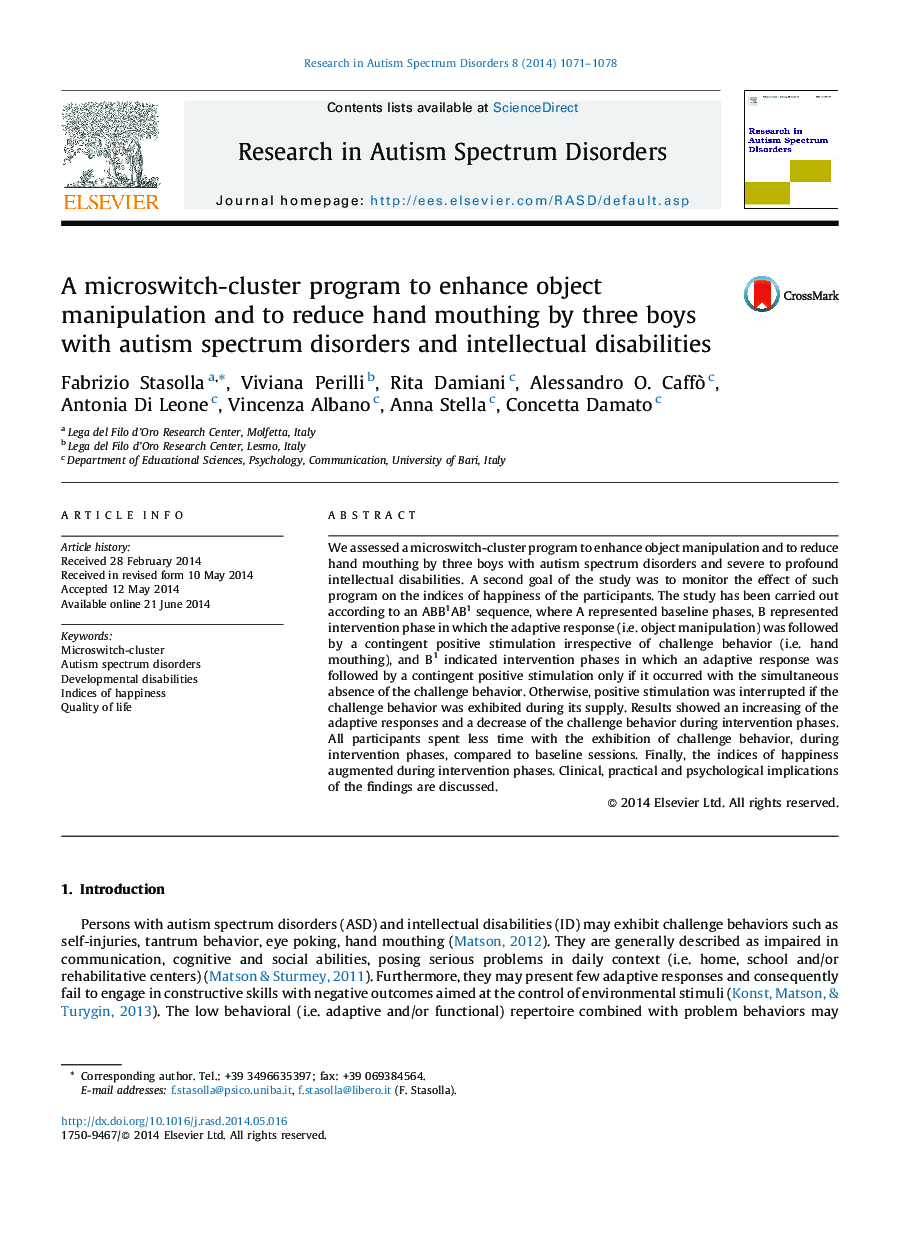| Article ID | Journal | Published Year | Pages | File Type |
|---|---|---|---|---|
| 370098 | Research in Autism Spectrum Disorders | 2014 | 8 Pages |
•ASD are commonly characterized by social, cognitive, communication impairments and stereotypies.•Three boys with ASD and ID were involved in a microswitch cluster program.•The microswitch cluster was aimed at promoting object manipulation and decreasing hand mouthing.•Results showed positive outcomes (i.e. performance and mood) by all participants.•Microswitch cluster-based intervention was successful for the three participants involved.
We assessed a microswitch-cluster program to enhance object manipulation and to reduce hand mouthing by three boys with autism spectrum disorders and severe to profound intellectual disabilities. A second goal of the study was to monitor the effect of such program on the indices of happiness of the participants. The study has been carried out according to an ABB1AB1 sequence, where A represented baseline phases, B represented intervention phase in which the adaptive response (i.e. object manipulation) was followed by a contingent positive stimulation irrespective of challenge behavior (i.e. hand mouthing), and B1 indicated intervention phases in which an adaptive response was followed by a contingent positive stimulation only if it occurred with the simultaneous absence of the challenge behavior. Otherwise, positive stimulation was interrupted if the challenge behavior was exhibited during its supply. Results showed an increasing of the adaptive responses and a decrease of the challenge behavior during intervention phases. All participants spent less time with the exhibition of challenge behavior, during intervention phases, compared to baseline sessions. Finally, the indices of happiness augmented during intervention phases. Clinical, practical and psychological implications of the findings are discussed.
